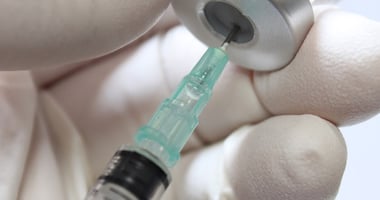Patients with a recent first episode of schizophrenia who are treated with a long-acting injectable...
LAI Aripiprazole May Reduce Recurrence of Mood Episodes in Patients With Bipolar I Disorder
 |
“These findings support the role of AOM 400 [aripiprazole once-monthly 400 mg] as the first monthly LAI for the maintenance treatment of BP-I [bipolar I disorder],” Joseph Calabrese, M.D., director of the Bipolar Disorders Research Center at Case Western Reserve School of Medicine, and colleagues wrote.
Poor adherence to treatment is a significant problem in patients with bipolar disorder, putting patients at increased risk of recurrence of mood episodes, hospitalization, and suicide. Previous studies of LAI risperidone—the only LAI atypical antipsychotic approved by the FDA for the treatment of bipolar I disorder—suggest LAI antipsychotics can potentially improve outcomes in patients.
For the current study, the researchers examined the effectiveness and safety of aripiprazole once-monthly 400 mg (AOM 400) in patients with bipolar I disorder who were experiencing a manic episode.
The study was divided into multiple phases which required patients to be first stabilized on oral aripiprazole, before receiving AOM 400 injections every four weeks. A total of 266 patients who met stability criteria for eight weeks or more (outpatient with Young Mania Rating Scale [YMRS] total score ≤ 12, Montgomery-Asberg Depression Rating Scale [MADRS] total score ≤ 12, and no active suicidality) were then randomized to receive injections every four weeks for 52 weeks of AOM 400 or placebo.
A total of 64 (48.1%) of 133 in the AOM 400 group and 38 (28.6%) of 133 in the placebo group completed the study. The primary measure outcome was time from randomization to recurrence of any mood episode.
The authors found that significantly fewer patients in the AOM 400 group (26.5%) experienced any mood episode compared with the placebo group (51.1%), with the effects observed predominantly on manic episodes. The LAI aripiprazole group was significantly more likely report weight gain, akathisia, insomnia, and anxiety than the placebo group.
“These efficacy results are consistent with the known efficacy of oral aripiprazole monotherapy in the maintenance treatment of BP-I [bipolar I disorder],” wrote Calabrese and colleagues. “[A]dditional studies on the potential benefits of LAIs in bipolar disorder are needed, including comparisons with oral formulations.”
This study was funded by Otsuka Pharmaceutical Development & Commercialization and H. Lundbeck A/S, makers of AOM 400.
For related information, see the Psychiatric News article “Some Experts Urge More Use of Long-Acting, Injectable Antipsychotics” and the Psychiatric Services article “Off-Label Prescribing of Psychotropic Medication, 2005–2013: An Examination of Potential Influences.”
(iStock/andrewsafonov)





